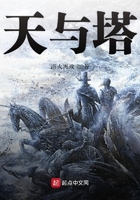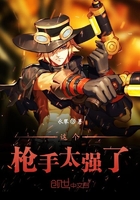After this it would seem that the three took counsel to- gether and halted, and the scouts who were watching them report that they remained absolutely stationary for the next half hour. The Martian who had been overthrown crawled tediously out of his hood, a small brown figure, oddly sugges- tive from that distance of a speck of blight, and apparently engaged in the repair of his support. About nine he had finished, for his cowl was then seen above the trees again.
It was a few minutes past nine that night when these three sentinels were joined by four other Martians, each carrying a thick black tube. Asimilar tube was handed to each of the three, and the seven proceeded to distribute themselves at equal distances along a curved line between St.
George's Hill, Weybridge, and the village of Send, southwest of Ripley.
A dozen rockets sprang out of the hills before them so soon as they began to move, and warned the waiting batteries about Ditton and Esher.
At the same time four of their fighting machines, similarly armed with tubes, crossed the river, and two of them, black against the western sky, came into sight of myself and the curate as we hurried wearily and painfully along the road that runs northward out of Halliford. They moved, as it seemed to us, upon a cloud, for a milky mist covered the fields and rose to a third of their height.
At this sight the curate cried faintly in his throat, and began running;but I knew it was no good running from a Martian, and I turned aside and crawled through dewy nettles and brambles into the broad ditch by the side of the road. He looked back, saw what I was doing, and turned to join me.
The two halted, the nearer to us standing and facing Sun- bury, the remoter being a grey indistinctness towards the evening star, away towards Staines.
The occasional howling of the Martians had ceased; they took up their positions in the huge crescent about their cylinders in absolute silence.
It was a crescent with twelve miles between its horns. Never since the devising of gun- powder was the beginning of a battle so still. To us and to an observer about Ripley it would have had precisely the same effect--the Martians seemed in solitary possession of the darkling night, lit only as it was by the slender moon, the stars, the afterglow of the daylight, and the ruddy glare from St. George's Hill and the woods of Painshill.
But facing that crescent everywhere--at Staines, Hounslow, Ditton, Esher, Ockham, behind hills and woods south of the river, and across the flat grass meadows to the north of it, wherever a cluster of trees or village houses gave sufficient cover--the guns were waiting. The signal rockets burst and rained their sparks through the night and vanished, and the spirit of all those watching batteries rose to a tense expecta- tion. The Martians had but to advance into the line of fire, and instantly those motionless black forms of men, those guns glittering so darkly in the early night, would explode into a thunderous fury of battle.
No doubt the thought that was uppermost in a thousand of those vigilant minds, even as it was uppermost in mine, was the riddle--how much they understood of us. Did they grasp that we in our millions were organized, disciplined, working together? Or did they interpret our spurts of fire, the sudden stinging of our shells, our steady investment of their encampment, as we should the furious unanimity of onslaught in a disturbed hive of bees? Did they dream they might exterminate us? (At that time no one knew what food they needed.) A hundred such questions struggled together in my mind as I watched that vast sentinel shape. And in the back of my mind was the sense of all the huge unknown and hidden forces Londonward. Had they prepared pitfalls? Were the powder mills at Hounslow ready as a snare?
Would the Londoners have the heart and courage to make a greater Moscow of their mighty province of houses?
Then, after an interminable time, as it seemed to us, crouching and peering through the hedge, came a sound like the distant concussion of a gun. Another nearer, and then another. And then the Martian beside us raised his tube on high and discharged it, gunwise, with a heavy report that made the ground heave. The one towards Staines answered him. There was no flash, no smoke, simply that loaded detonation.
I was so excited by these heavy minute-guns following one another that I so far forgot my personal safety and my scalded hands as to clamber up into the hedge and stare towards Sunbury. As I did so a second report followed, and a big projectile hurtled overhead towards Hounslow. I ex- pected at least to see smoke or fire, or some such evidence of its work. But all I saw was the deep blue sky above, with one solitary star, and the white mist spreading wide and low beneath. And there had been no crash, no answering ex- plosion. The silence was restored; the minute lengthened to three.
"What has happened?" said the curate, standing up beside me.
"Heaven knows!" said I.
A bat flickered by and vanished. A distant tumult of shouting began and ceased. I looked again at the Martian, and saw he was now moving eastward along the riverbank, with a swift, rolling motion, Every moment I expected the fire of some hidden battery to spring upon him; but the evening calm was unbroken. The figure of the Martian grew smaller as he receded, and presently the mist and the gathering night had swallowed him up. By a common impulse we clambered higher. Towards Sunbury was a dark appearance, as though a conical hill had suddenly come into being there, hiding our view of the farther country; and then, remoter across the river, over Walton, we saw another such summit. These hill-like forms grew lower and broader even as we stared.
Moved by a sudden thought, I looked northward, and there I perceived a third of these cloudy black kopjes had risen.















